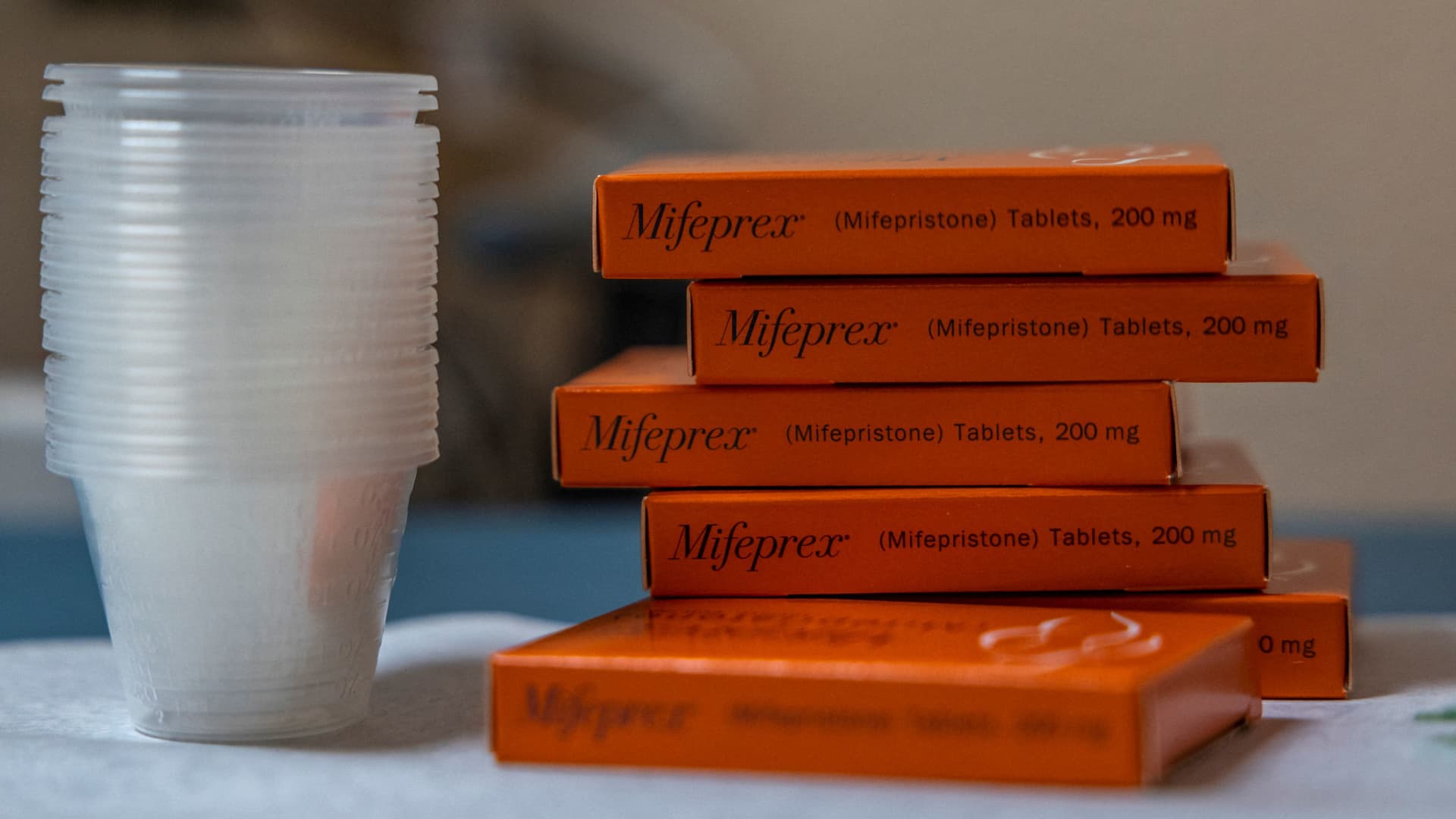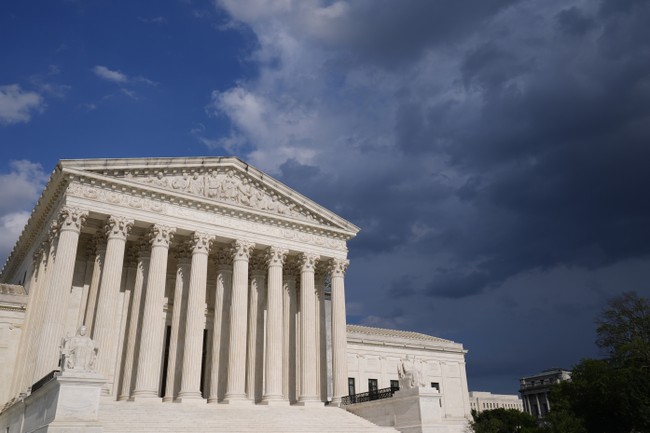Democratic and Republican attorneys general squared off on Friday in dueling arguments over an attempt by anti-abortion physicians to pull the abortion pill, mifepristone, from the U.S. market.
New York led a coalition of 22 attorneys general who argued that pulling the pill would have “devastating consequences” for women. Mississippi led 22 Republican attorneys general who argued that the Food and Drug Administration’s approval of mifepristone is “deeply flawed.”
The dueling arguments are part of an escalating federal court battle in Texas over a lawsuit filed by anti-abortion physicians last November, which seeks to overturn the FDA’s more than two-decade-old approval of mifepristone.
Used in combination with misoprostol, mifepristone is the most common method to terminate a pregnancy in the U.S., accounting for about half of all abortions.
The abortion rights group NARAL Pro-Choice America, in an analysis published Friday, said 40 million women would lose access to the abortion pill if the court overturns the FDA’s approval.
The coalition led by New York argued that overturning the FDA approval would make the pill largely unavailable, forcing women to either undergo a more invasive surgical procedure or forgo abortion altogether.
Surgical abortion is more costly and difficult to obtain, they argued, which would disproportionately impact women who are lower income, underserved or live in rural communities where there might not be access to a clinic.
“This would have devastating consequences,” the attorneys general told Judge Matthew Kacsmaryk, who is presiding over the case in the U.S. District Court in Northern Texas.
The coalition led by Mississippi backed the anti-abortion physicians claims, calling the FDA’s actions on mifepristone “deeply flawed.”
“For two decades, the U.S. Food and Drug Administration has acted to establish a nationwide regime of on-demand abortion by licensing sweeping access to chemical abortion drugs—in defiance of federal and state laws protecting life, health, and safety,” the Republican attorneys general argued.
Later Friday, 67 Republican members of Congress filed a brief calling the FDA’s approval of mifepristone “unlawful,” arguing it should be overturned. They claimed that the agency’s actions subverted Congress’ safeguards for patients. But the FDA has had regulations in place for years to monitor the safety of mifepristone, which it has gradually eased as more evidence has come in.
The FDA, in its response last month, called the lawsuit “extraordinary and unprecedented.” The agency’s lawyers said they could not find any previous example of a court second-guessing an FDA decision to approve a drug.
The FDA approved mifepristone as a safe and effective method to terminate an early pregnancy based on extensive scientific evidence, the agency’s lawyers wrote. Decades of experience among thousands of women have confirmed that the drug regimen is safer than surgical abortion or childbirth, the lawyers argued.
Kacsmaryk on Thursday extended a key deadline in the case. He ordered one of the abortion pill makers, Danco Laboratories, to lay out its opposition to the lawsuit. The anti-abortion physicians who brought the case then have until Feb. 24 to respond.
“Forcing FDA to withdraw a longstanding approval would seismically disrupt the agency’s governing authority as to whether drugs are safe and effective, and would cause Danco direct and immediate harm by shuttering its business,” attorneys for Danco Laboratories told the court Friday.
Mifepristone has become the central focus in the battle over abortion access since the Supreme Court overturned Roe v. Wade last June.
The FDA last month changed its regulations to allow certified retail pharmacies to dispense mifepristone. CVS and Walgreens, the nation’s two largest drugstore chains, have said they are getting certified to dispense the prescription medication in states where it’s legal to do so.
Republican attorneys general have warned the companies against distributing the pill by mail in their states, indicating that they would take legal action.
There are also lawsuits seeking to overturn state restrictions on mifepristone, arguing that they conflict with FDA regulations. GenBioPro, the other abortion pill manufacturer, is suing to overturn West Virginia’s ban. A physician in North Carolina is challenging that state’s restrictions.
The New York led coalition of attorneys general arguing to keep mifepristone on the market include: California, Colorado, Connecticut, Delaware, Hawaii, Illinois, Maine, Maryland, Massachusetts, Michigan, Minnesota, Nevada, New Jersey, New Mexico, North Carolina, Oregon, Pennsylvania, Rhode Island, Washington, Wisconsin and Washington, D.C.
The Mississippi led coalition arguing against the FDA approval of mifepristone include: Alabama, Alaska, Arkansas, Florida, Georgia, Idaho, Indiana, Iowa, Kansas, Kentucky, Louisiana, Montana, Nebraska, Ohio, Oklahoma, South Carolina, South Dakota, Tennessee, Texas, Utah and Wyoming.




















Discussion about this post